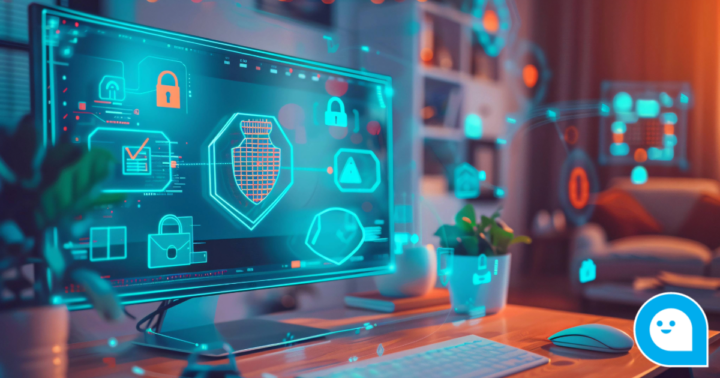As businesses increasingly shift to VoIP (Voice over Internet Protocol) for communication, the need for robust security measures has grown more urgent. VoIP offers immense flexibility, cost savings, and integration capabilities. However, with this shift comes a critical concern—security, particularly when it comes to encrypting voice calls. Sensitive business conversations, financial details, and confidential client information are often shared over VoIP, making these communications a prime target for cyberattacks.
In this article, we’ll explore the importance of VoIP call encryption, how it works, the risks of unencrypted VoIP communication, and best practices to safeguard your conversations.
Why Is VoIP Call Encryption Crucial?
When using VoIP for business communications, voice data is converted into packets of digital information and transmitted over the Internet. While this makes calls easy to route and cheap to make, it also exposes them to threats such as:
- Eavesdropping: Hackers can intercept unencrypted data packets and listen in on sensitive conversations.
- Data breaches: Unsecured VoIP systems can lead to the leakage of confidential business information.
- Man-in-the-middle (MITM) attacks: Cybercriminals can intercept and manipulate calls without either party knowing.
VoIP encryption ensures that even if cybercriminals manage to intercept the data packets, they won’t be able to decode them. This keeps business discussions, strategies, and personal information safe from prying eyes.
How Does VoIP Call Encryption Work?
Encryption transforms the digital voice data into unreadable code as it passes from one endpoint to another. Only the recipient with the correct decryption key can revert the data back into its original form.
Here’s a simplified breakdown of the process:
- Voice Compression: First, voice signals are compressed into data packets for faster transmission.
- Data Encryption: These packets are then encrypted using algorithms like Advanced Encryption Standard (AES) or Secure Real-time Transport Protocol (SRTP).
- Transmission: The encrypted data packets are transmitted through the internet.
- Decryption: At the recipient’s end, the data packets are decrypted and converted back into audible voice.
This ensures that even if a cybercriminal intercepts the communication, all they will see is gibberish instead of meaningful conversation.
The Risks of Unencrypted VoIP Calls
Failing to encrypt VoIP communications can expose businesses to significant risks, including:
1. Corporate Espionage
Unencrypted business calls can be intercepted by competitors or bad actors looking to steal sensitive information like trade secrets, product plans, or financial data. Espionage through VoIP can be highly detrimental to a business, leading to loss of competitive advantage and revenue.
2. Identity Theft
Personal information like customer data or financial details are often exchanged during business calls. If these calls aren’t encrypted, attackers can steal this information, leading to identity theft or financial fraud. In industries like healthcare or finance, this could lead to severe legal consequences due to regulatory non-compliance.
3. VoIP Phishing (Vishing)
Cybercriminals may intercept unencrypted calls to launch vishing attacks, tricking employees into divulging sensitive information or transferring funds. Vishing relies on manipulating employees into thinking they are communicating with a legitimate person or organization.
4. Data Manipulation
In a man-in-the-middle attack, hackers not only intercept but also manipulate the data being transmitted. This could mean altering the content of a conversation or injecting malicious data into the call, which could compromise sensitive negotiations or lead to miscommunication within teams.
5. Legal and Compliance Issues
Many industries are subject to regulations that demand the encryption of communications. For instance, HIPAA in healthcare and PCI DSS in payment processing require companies to protect client data. Failure to encrypt VoIP calls could result in hefty fines and legal penalties.
Encryption Protocols Used in VoIP
VoIP systems utilize several encryption protocols to secure communications. Here are the most common ones:
1. Secure Real-time Transport Protocol (SRTP)
SRTP is the go-to encryption standard for VoIP calls. It works by encrypting the voice data packets in real-time, making them unintelligible to anyone who tries to intercept the conversation. SRTP also ensures data integrity, meaning that any tampering of the call data is easily detected.
2. Transport Layer Security (TLS)
TLS encrypts the signaling component of VoIP communications. While SRTP encrypts the voice data, TLS secures the “handshake” between two devices. This protocol ensures that call setup, termination, and other signaling functions are done securely, protecting against unauthorized access.
3. Zfone
Zfone is an open-source encryption tool that works with existing VoIP systems. It encrypts voice calls in a peer-to-peer fashion without needing a central server. Zfone ensures end-to-end encryption without requiring complicated installations or configurations.
4. IPsec (Internet Protocol Security)
While not specific to VoIP, IPsec can be used to encrypt and authenticate all IP communications, including VoIP. It is particularly useful in securing communication channels between remote offices.
Best Practices for Securing VoIP Communications
Implementing encryption is just one aspect of securing your VoIP system. To fully protect your business, follow these best practices:
1. Use End-to-End Encryption
Ensure that both the data (voice packets) and signaling components of VoIP are encrypted. A combination of SRTP for voice encryption and TLS for signaling is ideal for comprehensive security.
2. Update and Patch Systems Regularly
Outdated software and hardware are common entry points for cybercriminals. Keep your VoIP systems and encryption protocols up-to-date with the latest patches and updates from your provider.
3. Use Strong Authentication
Ensure that only authorized users can access your VoIP network. Use strong, multi-factor authentication (MFA) to prevent unauthorized access.
4. Train Employees
Educate employees on VoIP security best practices. This includes recognizing phishing and vishing attempts and understanding the importance of encrypting sensitive calls.
5. Monitor Network Traffic
Use firewalls, intrusion detection systems (IDS), and real-time monitoring to identify unusual patterns of network traffic. Suspicious activity can be an indication of an attempted breach.
6. Work with Trusted Providers
Not all VoIP providers offer strong encryption options. Work with a trusted VoIP provider that offers built-in security measures, including end-to-end encryption and secure protocols.
Summary
VoIP call encryption is not a luxury—it’s a necessity for businesses handling sensitive information. By encrypting your voice communications and following best practices, you can protect your company from a wide range of cyber threats. Safeguarding sensitive business conversations is vital not just for privacy, but for maintaining the trust of clients, partners, and stakeholders in an increasingly digital world.

